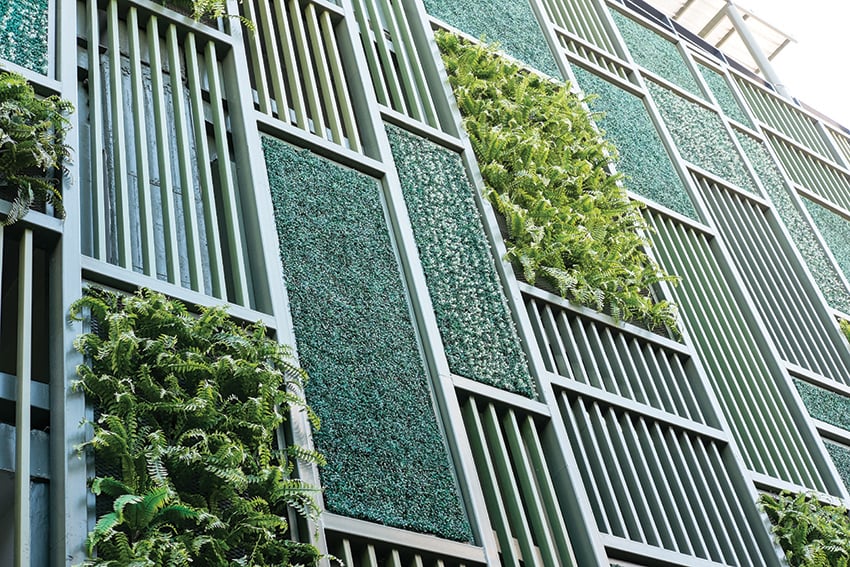Updated on 28 April 2020
These measures have serious repercussions on many sectors that are used to doing business with authorities and public law entities. For example, the construction companies are considered nonessential, with exceptions for sectors such as energy, water and waste disposal. As a result, also construction companies must guarantee social distancing on their worksites. In general, many businesses’ supply chains are disrupted.
Questions that arise are whether tenderers are entitled to any kind of relief, both during the award procedures and during the performance of their public contracts for works, supplies or services.
The Federal Government has also taken measures extending certain time-limits in relation to procedures before the civil courts and the Belgian State Council. These measures have repercussions for the remedies in relation to public procurement procedures.
Can a candidate or tenderer invoke force majeure during the award procedure?
In view of the current COVID-19 crisis, tenderers may be unable to timely submit a request for participation or a tender in a public procurement procedure. For example, a candidate or tenderer may not be able to provide all the requested documents on time. The question is whether a candidate or tenderer can then invoke force majeure in order to safeguard its participation in the public procurement procedure.
Force majeure in the award phase by a candidate or tenderer has so far mainly been accepted by the Belgian State Council (the administrative supreme court) for last-minute issues with the electronic signature of tenders, issues with electronic tender platforms or issues with the continuity of postal services. Similarly, force majeure may be invoked in cases where certain documents from official instances requested in a timely manner were not delivered on time.
In order to prove force majeure, the candidate or tenderer will have to show that every effort has been made to avoid the force majeure. The burden of proving force majeure lies with the candidate or tenderer. The candidate or tenderer will have to prove the force majeure by means of documentary evidence. This evidence must demonstrate that the force majeure was unforeseeable and reasonably unavoidable.
If force majeure is accepted, the contracting authority must mitigate the consequences. Importantly, the contracting authority can only accept a late request for participation or tender for force majeure if there is no risk of manipulation.
In most cases, however, it will not be necessary to do so. For example, contracting authorities may, on their own initiative, choose to postpone the deadline for submission. When doing so, they must take into account the principles of equality and reasonableness. The public sector was quick to acknowledge the seriousness of the situation. For example, a circular from the Walloon Government dated 26 March 2020 (the Walloon Circular) provides guidance to the contracting authorities that fall under the Walloon Government. The Circular advises, amongst other things, for the deadline for on-going award procedures to be postponed until after 20 April 2020.
The Flemish government seems to take a stricter approach in its circular of 10 April 2020 (the Flemish Circular). The Flemish Government emphasizes that the COVID-19 measures do not in themselves constitute a reason to postpone the launch of a tender procedure and recommends new procedures be announced as planned, possibly subject to an extended deadline for submission. Only in cases where contracting authorities are aware that they will be significantly affected by the COVID-19 measures, they may consider postponing the launch of a tender procedure until the measures are eased or lifted. An extended submission deadline can occur when contracting authorities are aware that potential tenders are experiencing difficulties in preparing or submitting their tenders on time, but also when contracting authorities consider that the consequences of the COVID-19 measures will lead to higher prices or reduced competition.
The publications on the e-notification platform of the past weeks show that many contracting authorities are currently postponing the submission dates for their non-urgent public contracts.
If you experience issues with preparing your bid as a result of the current crisis, it is important to timely contact the contracting authority on this.
Is a contractor under a public procurement contract entitled to extension of the time-limits?
Contractors performing public contracts for works, supplies or services may experience difficulties to perform their obligations as a result of the crisis. Some activities may no longer be possible due to social distancing rules, essential supplies from abroad may have become difficult or impossible to obtain and suppliers or subcontractors may be unavailable.
Under these circumstances, contractors may request an extension of the deadlines or other forms of relief on the basis of the Royal Decree of 14 January 2013 establishing the general conditions for the performance of public procurement contracts (the GCP). The GCP apply to most public procurement contracts, unless specifically provided otherwise in the contractual documentation.
The GCP provide for a ‘hardship clause’, i.e. the right for the contractor to request a review of the contract, even if the contract does not provide for a specific arrangement. Such review may include the extension of the contractual deadlines or compensation of additional costs to the extent they exceed certain thresholds.
A tenderer that wishes to claim relief must demonstrate that the amendment has become necessary as a result of circumstances that it could not reasonably foresee at the time of the submission of its tender, that it could not avoid and the consequences of which it could not provide for, although it has taken all the necessary measures.
Alternatively, the contractor may invoke a force majeure event, making the performance of its obligations impossible – therefore making the performance of the contract also impossible – due to an insurmountable event beyond its control, even though it had taken all the necessary measures. Depending on the circumstances and timing, the government measures in relation to the lockdown and their consequences may characterize as force majeure.
It is important that contractors act timely in order to benefit from the above. The GCP require that the contractor must notify the contracting authority in writing and within 30 days of (i) the relevant facts and (ii) their impact on the progress and cost of the performance of the contract. A duly justified request in writing for relief must then follow.
The Walloon Circular and the Flemish Circular refer to the possibility for the successful tenderer to request a review of the contract for unforeseeable circumstances.
The Walloon Government urges the contracting authorities to treat any requests with common sense and in good faith.
In the Flemish Circular, the Flemish Government makes a number of suggestions for contracting authorities to provide relief to contractors. Such relief may include accelerating payments and waiving penalties. It further emphasizes the duty for the contractor to minimize the damages in the event of exceptional circumstances. This includes the obligation to take all protective measures (both in relation to the infrastructure and the safety) in order to close the building site and to guarantee a swift restart afterwards. The Flemish Circular stresses that the burden of proof of the exceptional circumstances is with the contractor and that they must have been reasonably unforeseeable at the time of the contractor’s tender. If there is a negative impact on the works but they can nevertheless be continued, it is important that the contractor complies with the Government’s COVID-19 measures. Any non-compliance with these measures will be considered a breach under the on-going public procurement contract.
Are unsuccessful tenderers entitled to an extension of the time-limits for challenging award decisions?
The Federal Government has enacted two Royal Decrees in relation to procedural time-limits under the special powers that were granted to it in view of COVID-19:
- Royal Decree n° 2 deals with time-limits in relation to proceedings before the civil courts. Time-limits for bringing proceedings before the civil courts which expire between 9 April and 3 May (provisionally) are extended with one month as from 3 May.
- Royal Decree n° 12 deals with time-limits in relation to proceedings before the Belgian State Council, the highest administrative court. Time-limits for bringing proceedings before the State Council which expire between 9 April and 3 May (provisionally) are extended with 30 days as from 3 May. Royal Decree n° 12 expressly provides that this extension is not available for extreme urgency proceedings.
This has interesting consequences for the time-limits to bring suspension procedures against award decisions. For those contracting authorities that are administrative authorities and that are subject to the jurisdiction of the State Council, suspension proceedings must still be launched within 15 days from the award decision. However, for award decisions taken by contracting authorities and contracting entities that are not administrative authorities, the time-limits for launching a suspension request are now extended until (at least) 3 June 2020.
However, if you wish to challenge an award decision from a awarding entity that is not an administrative authority, we would not recommend waiting beyond the usual 15 days’ period. The reason is that neither of the Royal Decrees makes any changes to the 15 days’ standstill period during which the contracting authority may not enter into the contract. Once that period has passed, the contracting authority may validly enter into the contract. A suspension procedure may then still be successfully brought after that time, but there will not be an obligation for the authority to terminate the contract.
Any questions ? Do not hesitate to contact Valentijn De Boe, Partner in the Public Law department.







